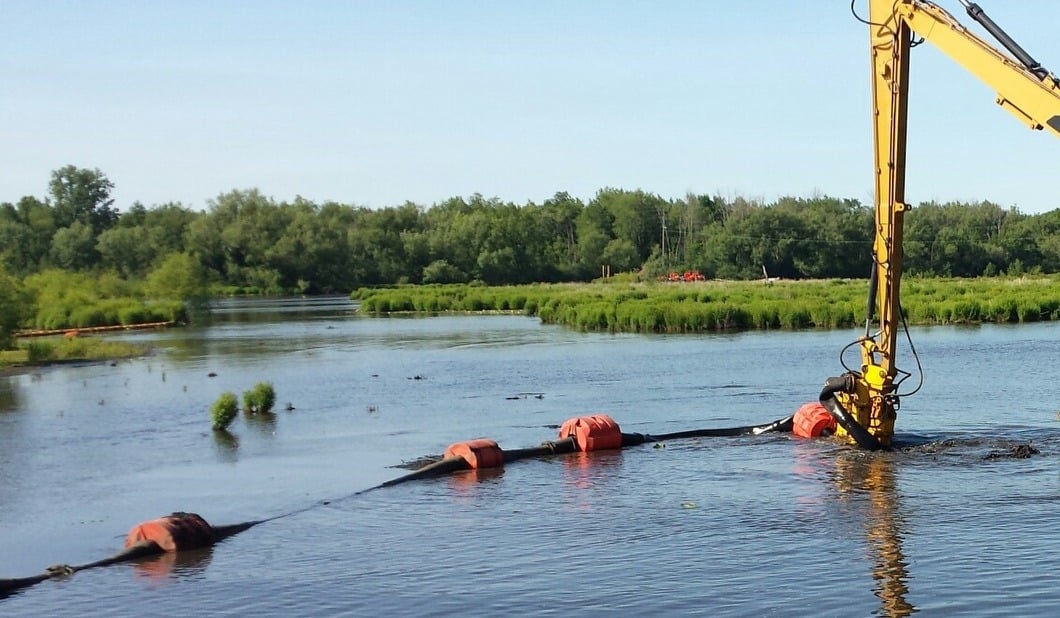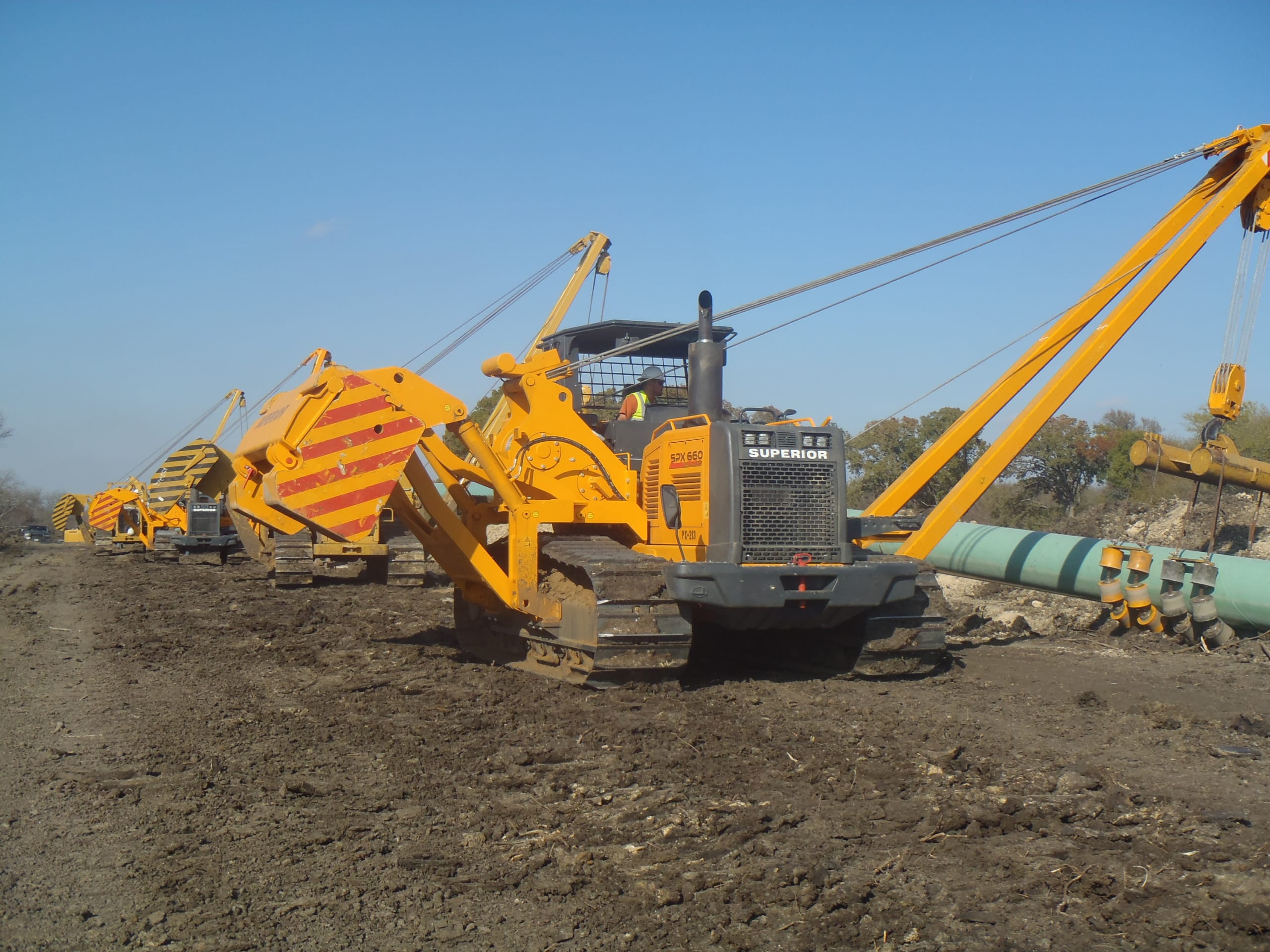Superior Rentals fusion machines: how they save time
A Comprehensive Guide to the Different Types of Oil Field Equipment and Pipeline Equipment Available
The oil and gas market depends heavily on customized tools for effective removal and transport. Different types of machinery, from drilling rigs to tank, play crucial duties in this intricate procedure. Each item of tools serves distinct functions that add to overall functional success. Comprehending these elements is essential for anybody involved in the sector. As the industry evolves, so too do the technologies that sustain it. What developments are on the horizon?

Drilling Rigs: The Foundation of Oil Exploration
Drilling rigs function as the important equipment in the domain of oil expedition, allowing firms to gain access to hydrocarbon reserves hidden deep beneath the Planet's surface. These rigs are available in different kinds, including land rigs, offshore rigs, and mobile systems, each made to operate in particular settings. Equipped with sophisticated modern technology, drilling rigs can permeate geological formations with accuracy, making certain efficient resource removal. The structural stability and functional capabilities of these rigs are critical, as they need to withstand severe problems and significant stress. The choice of a drilling rig influences the total task expense and timeline, making it a crucial factor to consider for oil firms looking for to maximize their exploration efforts and make the most of efficiency in their operations.
Pumps: Important for Liquid Motion
In the oil extraction procedure, the duty of pumps is significant, helping with the movement of fluids throughout numerous stages of production. Pumps are essential for carrying petroleum, water, and other liquids from below ground storage tanks to the surface area and after that through pipelines to refineries. They can be found in different types, consisting of centrifugal, favorable displacement, and submersible pumps, each offering details purposes based upon the liquid characteristics and operational needs. Centrifugal pumps are generally made use of for their effectiveness in high-flow applications, while favorable displacement pumps succeed in taking care of thick fluids. The choice of pump influences total effectiveness, operational safety, and upkeep expenses. Appropriate selection and upkeep of pumps are important for optimizing manufacturing and reducing downtime in oil area operations.
Valves: Managing Circulation and Pressure

Shutoffs play an important role in managing the circulation and stress of fluids within oil fields and pipes. Numerous kinds of shutoffs offer distinct applications, each developed to satisfy certain features basic for reliable procedure - Superior Rentals reviews. Recognizing the features and usages of these shutoffs is necessary for maximizing system efficiency and security
Sorts of Valves
Vital elements in oil field procedures, shutoffs play a crucial role in managing the flow and pressure of liquids within pipelines and equipment. Different types of valves are used to satisfy the diverse requirements of oil and gas production. Common types consist of gate valves, which give a straight-line circulation and very little pressure decline; world valves, understood for their strangling abilities; and ball valves, identified for their fast on/off control. Furthermore, check valves prevent heartburn, while butterfly valves offer a light-weight option for regulating circulation. Each shutoff kind is designed with specific products and arrangements to hold up against the rough problems commonly discovered in oil fields, guaranteeing dependability and efficiency in operations. Understanding these kinds is essential for reliable system administration.
Valve Applications and Functions
While numerous kinds of valves serve distinct objectives, their main applications focus on controlling flow and stress within oil and gas systems. Valves such as entrance, globe, and round valves control liquid movement, ensuring peak efficiency and safety. Gate valves are frequently made use of for on/off control, offering minimal flow resistance. Globe valves, on the other hand, offer precise flow regulation, making them ideal for strangling applications. Sphere shutoffs are favored for their fast operation and limited sealing abilities. In enhancement, stress relief valves are critical for avoiding system overpressure, safeguarding devices honesty. Overall, the suitable selection and application of valves improve functional effectiveness, ensuring the trustworthy transport of oil and gas through pipelines and handling facilities.
Compressors: Enhancing Gas Transport
Compressors play a crucial role in the effective transport of all-natural gas, guaranteeing that it moves smoothly with pipelines over cross countries. These tools raise the stress of gas, allowing it to conquer rubbing and elevation adjustments within the pipeline system. In addition, compressors facilitate the balancing of supply and need, suiting variations in intake and manufacturing prices. Different kinds of compressors are utilized in the market, including centrifugal, reciprocating, and rotary screw compressors, each offering distinct advantages based on the functional needs. Routine maintenance of these compressors is necessary to make the most of efficiency and minimize downtime, ultimately adding to a reliable gas transport network. Their essential feature highlights the significance of compressors in the general oil and gas facilities.
Storage Tanks: Safe and Effective Fluid Monitoring
Effective transportation of all-natural gas counts on numerous support group, one of which is the correct administration of tank. These containers play a necessary duty in securely consisting of fluids, ensuring that functional efficiency is kept while reducing ecological dangers. Constructed from sturdy products, they are developed to stand up to high pressures and corrosive components. Appropriately sized and tactically located, tank help with the smooth circulation of gas and other fluids, preventing bottlenecks in supply chains. Regular upkeep and tracking are crucial to discover leaks or architectural problems, advertising security and compliance with regulative standards. Inevitably, the efficient management of tank is essential for the general integrity and dependability of the oil and gas industry's fluid handling systems.
Pipeline Systems: Facilities for Transport
Pipeline systems act as the foundation of the oil and gas industry, facilitating the reliable transport of hydrocarbons over huge distances. These systems contain numerous parts, including pipes, valves, pumps, and compressors, all meticulously made to ensure seamless flow. The materials utilized in pipeline building, typically steel or high-density polyethylene, are selected for sturdiness and resistance to corrosion. Pipeline networks can extend throughout land and water, linking manufacturing websites to refineries and warehouse. Additionally, advanced modern technology makes it possible for real-time monitoring of circulation prices and stress degrees, enhancing functional performance. The strategic positioning of these pipelines decreases environmental impact while making best use of source access, therefore playing an essential function in meeting power needs internationally.
Security Equipment: Guaranteeing Worker and Environmental Management
The procedure of pipeline systems, while crucial for power transportation, also provides considerable safety obstacles for employees and the environment. Safety and security tools plays a considerable role in mitigating these risks. Individual safety devices (PPE) such as safety helmets, gloves, and non-slip shoes safeguards workers from physical hazards. In addition, gas detection systems check for leakages, ensuring that unsafe compounds do not pose a threat to employees or the surrounding ecological community. Emergency closure systems are imperative for swiftly halting procedures during a dilemma, avoiding possible disasters. Spill control products, including absorbents and obstacles, are fundamental for lessening ecological effect. On the whole, investing in all-encompassing security read more tools is crucial for keeping operational honesty and protecting both workers and the setting in the oil and gas sector.

Regularly Asked Inquiries
Exactly how Do I Pick the Right Oil Field Equipment for My Job?
Picking the right oil field devices includes reviewing task specifications, budget plan restrictions, and functional demands. Take into consideration variables such as equipment reliability, compatibility with existing systems, and the provider's track record to ensure peak efficiency and safety and security.
What Are the Upkeep Needs for Oil Field Equipment?
Upkeep demands for oil area devices include routine evaluations, lubrication, and timely repair work. Operators ought to likewise comply with producer guidelines, monitor performance metrics, and guarantee compliance with security policies to enhance longevity and efficiency.

How Can I Ensure Conformity With Environmental Rules?
To guarantee conformity with ecological laws, business need to perform regular audits, apply ideal techniques, spend in training, preserve appropriate paperwork, and stay upgraded on regulation (Superior Oilfield pipeline equipment rentals). Partnership with environmental companies can also enhance adherence to policies
What Is the Average Life Expectancy of Pipeline Equipment?
The average lifespan of pipeline devices commonly varies from 20 to 50 years, depending upon variables such as material quality, ecological problems, and maintenance practices. Regular evaluations can substantially affect longevity and functional performance.
Exactly how Do I Safely Move Oil Field Equipment to Remote Locations?
Transferring oil area equipment to remote locations needs cautious preparation, consisting of path evaluation, protecting licenses, utilizing appropriate lorries, and guaranteeing safety procedures are complied with. Appropriate training and interaction amongst teams are crucial for successful transport.